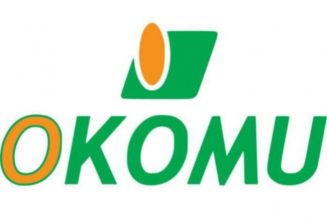
Njeri Njoori enjoys working with rural women.
After completing her master’s degree at the UK’s Birmingham City University in 2003, she decided to work with women in the dairy industry.
The food science professional would teach women how to package dairy products and private labelling to increase productivity and competitiveness.
After being at it for several years, Ms Njoori decided to come up with a probiotic yoghurt branded Cool Fresh Yoghurt.
Through her company known as Orchards Limited, she would supply the product to several supermarkets, including Uchumi and Nakumatt — the now fallen retail giants.
When French supermarket Majid Al Futtaim Hypermarkets Limited, which operates as Carrefour came calling, it found her products on the shelves at the then Nakumatt, Karen in Nairobi.
The supermarkets chain approached her, and they signed a deal to stock her products in a commercial arrangement that lasted between 2015 and 2018.
The deal appeared good until she allegedly discovered that she was being shortchanged.
Ms Njoori then wrote to the Competition Authority of Kenya (CAK) and the Association of Kenya Suppliers, accusing the retail chain of abusing buyer power.
That was in April 2016.
Among the complaints to the regulator was that the supermarket had unilaterally delisted her products by blocking its supplier code without notice and leaving her with dead stock.
Further, Ms Njoori said the supermarket demanded various rebates including a Sh50,000 listing fee, 10 percent on every second delivery and 1.25 percent on all annual sales.
She said the supermarket introduced progressive rebates calculated from annual sales or turnover from her company which was unilaterally deducted from invoices.
And when she asked Carrefour to account for payments, the supermarket would allegedly decline, making her reconciliations difficult and court trouble with the Kenya Revenue Authority (KRA).
“They would also return products nearing expiry dates and refuse deliveries at various branches,” she said adding that she remembers an incident when she was asked to deliver the yoghurt at night, but they would refuse to open the store for delivery. The retail chain also declined a new price list.
Ms Njoori further said the supermarket asked her to deploy her employees to the retail shops, thereby transferring labour costs to her. “They would also ask for free samples, which they would then sell,” she added.
After hearing her case, CAK made a determination in February 2020, agreeing with Njoori that Carrefour contravened the Competition Act, by abusing its superior bargaining power over the yoghurt firm.
Carrefour appealed against the decision, but the Competition Authority Tribunal upheld the decision and directed the retailer to refund rebates amounting to Sh289,482 deducted from the supplier’s invoices plus a penalty of Sh124,768.
Not satisfied, the retail chain moved to the High Court arguing that it was not given a fair hearing, as it was not allowed to call witnesses and adequate time to respond to the accusations.
During the hearing at the High Court, the Authority maintained that Carrefour violated section 24(2A) of the Act by applying and collecting rebates, unilaterally de-listing the supplier and transferring commercial risks by returning goods nearing expiry, refusing to accept delivery and transferring costs by requiring Njoori’s company to post employees to the supermarkets.
CAK further informed the court that on February 22, 2021, shortly before the delivery of the decision by the Competition Tribunal, the Paris Commercial Court fined the Carrefour franchise in France 1.75 million Euros for the self-same conduct towards its suppliers, just like it was doing for Orchards Ltd.
The regulator said the abuse of buyer power by one player weakens the negotiating position of buyers who lack such power and who are forced to pay higher prices due to their smaller sales volumes.
In a decision last week, the High Court upheld the tribunal’s finding and ruled that CAK had the power to investigate complaints of abuse of buyer power.
Carrefour partly won in the judgment after Justice Anne Ong’ijo faulted the tribunal for directing Carrefour to amend contracts with the 699 other suppliers, without joining them in the case.
The mother of two previously worked for Coca-Cola and Reckitt Benckiser, the latter as manager for sub-Saharan Africa.
She is also a founder member of the Association of Suppliers in Kenya and credits herself for having revolutionised the packaging of milk in Kenya, which she started with the collapsed Uchumi Supermarket.
Asked how she decided to take on the retail chain, Ms Njoori said she cannot sit pretty when being oppressed. She said many Kenyans do not come out to speak up when they are being oppressed.
“They fear coming out and opt to suffer silently. For me, I don’t fear. I speak out,” she said.
She, however, had to quit the business because she pumped in a lot of money and there were very low returns.
“It was discouraging. I lost my business, but I did not lose myself,” she said, adding that she decided to venture into dairy farming.
Njoori said she purchased a parcel of land in Maragua, Murang’a County and invested in dairy farming and on a daily basis, she delivers about half a tonne of milk to a processor.
She says she does not desire going back to processing saying the cost of doing business is very prohibitive.
“Some supermarkets would refuse to pay. The business is not an easy task, especially if you are a macro-enterprise,” she said, citing the many licenses required in the venture and harassment by county government authorities.
She regrets the collapse of her business because she had to fire the 10 people she had employed directly and cut links with scores of farmers she had contracted to supply her with milk.
Ms Njoori ventured into politics in 2017 as a deputy gubernatorial candidate in Nyeri but lost. She tried her luck in 2022 this time as a Nyeri woman representative but also lost.
She is now happy running her dairy farm and taking care of her granddaughter.









